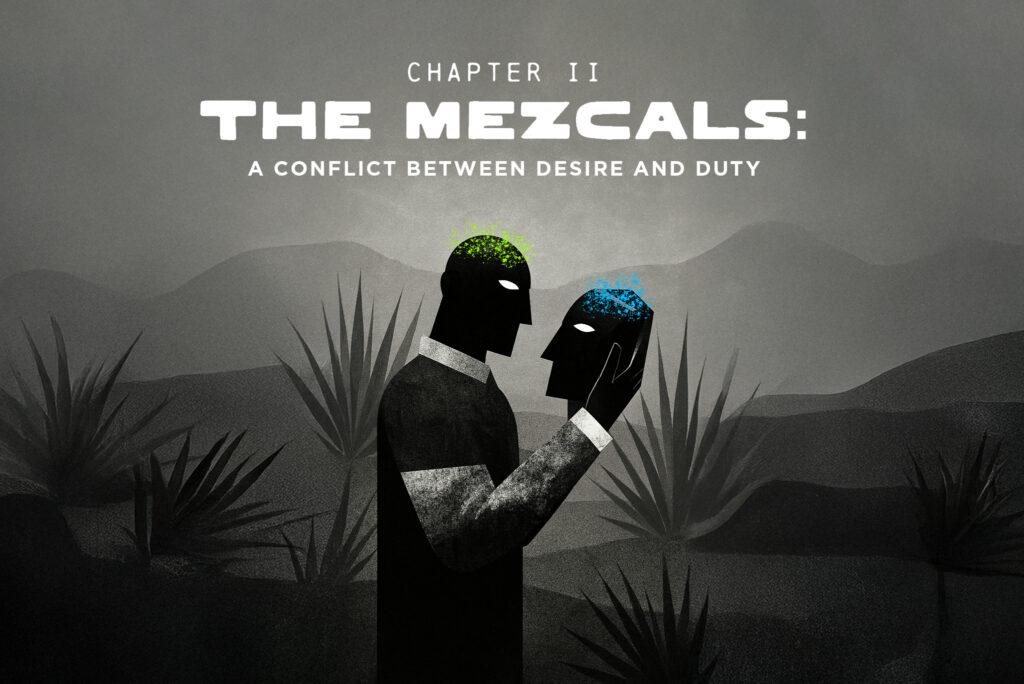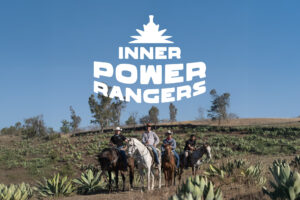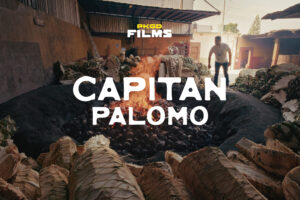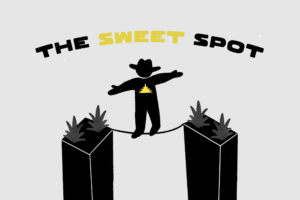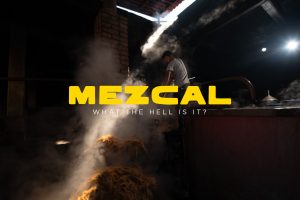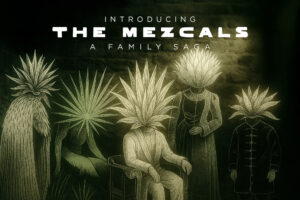Chapter II: A Conflict Between Desire and Duty
Long before Azul found his name in the mouths of strangers, there was only “vino mezcal de Tequila” — a coarse spirit, half-wild and half-willed, born in the ravines and valleys of Jalisco. It was the drink of a new nation, rising from the ashes of Empire. When Mexico won its independence, the Spanish liquors grew scarce. Brandy faded, and cognac turned to rumor. In the absence of kings, the people drank from the land.
First came Don Pedro Sánchez de Tagle, a man with vision and lineage. He set up the first taberna where cooked agave met fire and copper, and from it poured something smoky, something proud. Then came Cuervo, pragmatic and patient. And later, Cenobio Sauza — a dreamer with his sleeves rolled up. He bought La Antigua Cruz — an old distillery nestled in the heart of Tequila, known for its rustic charm and long-forgotten promise — and renamed it La Perseverancia, because he knew the work ahead would require exactly that: perseverance.
But the industry, though growing, was fragile. The agaves they used were criollos — underfed bastards of uncertain lineage. They gave what they could, but it was never enough. In every bottle, there was struggle. For every promise, a shortfall. They wanted to grow. The world was ready. But their roots were weak.
It was then that Azul arrived. He came without a carriage, without money, only with a name pressed onto him like a label: Weber. He walked into Jalisco like an exiled prince with no kingdom, dragging behind him the dust of Oaxaca and the silence of his brother. He missed Verde with a pain that didn’t speak. He had been told he was chosen, promised a future — but the future had not written back.
One night, in a rented room above a pulquería, he wrote a telegram to Oaxaca: “Brother, I was wrong. This land is not ours. I should never have left.”
Verde answered: “Destiny is a conflict between desire and duty.”
Azul read it again and again. He thought Verde meant that Azul had chosen desire, and he had chosen duty. And perhaps he had. But the words rang deeper than he could understand.
Broke, broken, walking a dirt path in the hills outside Tequila, Azul came across a taberna where men were distilling with nothing but courage and patched equipment. They offered him a meal. He offered them a hand. For days, he helped. He cleaned ovens, chopped agave, watched the ferment bubble like breath. Something shifted. The work made sense. Fire, patience, and sugar — that was all. There was no theory. No names. Only heat and time.
When the first batch came out, they poured it into a tin cup. Azul tasted it. Something was there. Something new. Soon, everyone in Tequila tasted it.
The town buzzed with the rumor of a spirit unlike anything they’d known. Not mezcal. Not pulque. Not wine. It was familiar and foreign. It had the silence of the past and the nerve of the future.
In La Perseverancia, the air was heavy with tobacco smoke and anticipation. Don Cenobio Sauza — once a modest producer, now one of the most influential figures in Jalisco’s growing spirits trade — sat at the head of a long table lined with government officials, local businessmen, and skeptical financiers. The walls around them were old, but the energy in the room was urgent. It was a time of ambition. Tequila — or rather, mezcal de Tequila — had the potential to become something more than a regional curiosity, but the infrastructure and raw materials were holding it back.
Don Cenobio believed in the future. He had already begun exporting to the United States. He had modernized stills, tightened operations, and spent years nurturing his reputation. But even he could not overcome the limitations of the agave criollo, which grew slowly and offered too little for too much labor. The math didn’t favor the dream.
He presented charts, spoke of foreign markets, of building not just a product but a legacy. And yet, his pitch was unraveling. Questions began to form in the eyes of his guests. Then, a knock at the door. A breathless worker stepped in, interrupting the murmurs of discontent.
“Señor, you have to try what they’re making in the taberna down the hill.”
Sauza frowned. “This is not the time.” But his eyes said otherwise. The worker handed him a small glass. He drank. Then silence. He stood. “Serve everyone.”
The air changed. Men sipped. Eyes widened. The room felt different, charged, as if someone had just rewritten the rules. “This,” said Don Cenobio slowly, “is what we’ve been waiting for.”
Azul was invited to La Perseverancia. He arrived unsure, with the dream of saving enough to return to Oaxaca. Days passed. Then an offer. They would give him everything — position, power, export, prestige. But only if he stayed. Only if he gave up Mezcal. Only if he embraced a new name.
“We won’t call it mezcal anymore,” said Don Cenobio. “This is something new. This is Tequila. And you — you will be its face.”
Azul refused.
He left with empty hands and a torn heart. He wandered. He worked with small producers, earning centavos. The dream of returning home faded with each harvest. Cuervo and Sauza owned the roads. Without them, he was dust.
One night, under a moon that gave no warmth, he sat by the fire and read again the telegram from Verde. The words twisted inside him. “Destiny is a conflict between desire and duty.” He wanted to disappear.
And then, he saw the letter from Sauza again. Signed: La Perseverancia. It had been weeks since he last opened it, but now, something in the name struck him differently. He stared at it for a long time. Not the ink. Not the words. But what they reflected.
He thought again of Verde’s telegram. “Destiny is a conflict between desire and duty.” He had always assumed it was about the two of them. One chose ambition. The other chose legacy. But now he saw it clearly — the conflict was not between brothers. It was inside him.
He had spent all this time trying to understand his desire. And only now did he realize: he had never understood his duty. He had never even asked what it was. That question, sharp and silent, filled his heart.
And as it filled him, he smiled. Not cruelly. Not bitterly. But with the clarity of someone who had stopped pretending to be lost. He would persevere. Not to return home. But to become something else — something his past would never have allowed.
He remembered the rivalry, the family fights, the weight of Oaxaca, the poverty, the shame. He didn’t want to carry it anymore. His heart didn’t beat for return. It beat for conquest.
He put on his only clean shirt and walked to La Perseverancia.
“I’m ready,” he said.
Don Cenobio raised a glass.
Azul lifted his chin. “My name is Tequilana Weber. And this is my home.”
This article was structured with the assistance of artificial intelligence (ChatGPT). All content is based on human input and editorial oversight. For more details on how PKGD integrates AI responsibly, please refer to our AI Policy.

